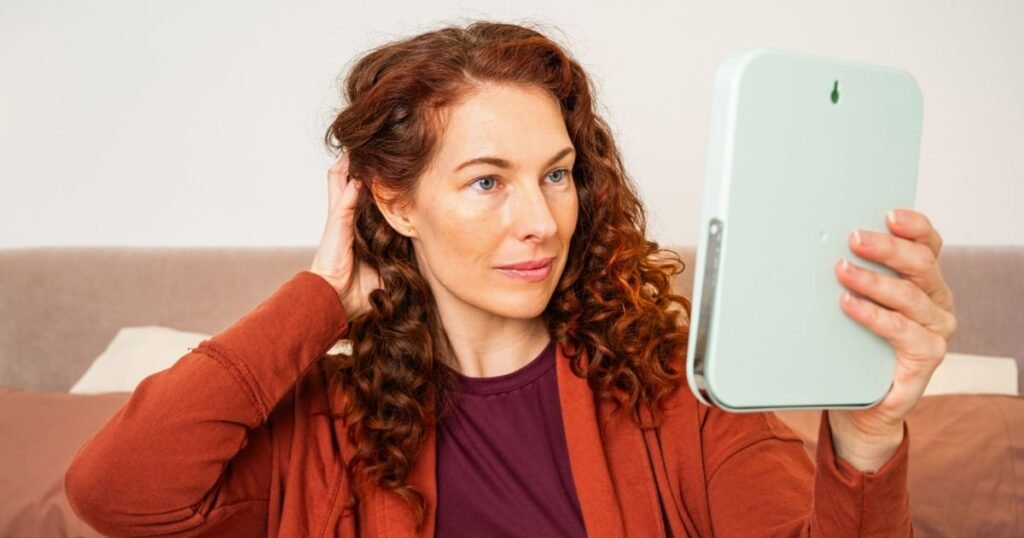The Truth About Biotin and Your Hair: What You Need to Know About Hair Loss Solutions
If you’re on the quest for longer, thicker hair, chances are you’ve come across biotin. This B vitamin is featured in numerous hair care products, from shampoos and serums to supplements and gummies, often touted as the ultimate solution for achieving lush locks. But does biotin live up to the hype? Let’s delve into what dermatologists say about this popular hair nutrient and other effective alternatives for hair growth.
What is Biotin?
Biotin, part of the B complex group of vitamins, is essential for energy metabolism in the body. Dr. Elizabeth Bahar Houshmand, a board-certified dermatologist in Dallas, highlights biotin’s role in transforming carbohydrates into glucose—critical for energy production.
Essential Nutrient for Hair, Skin, and Nails
According to Dr. Kathleen Suozzi from Yale University, biotin plays a crucial role in maintaining healthy skin, hair, and nails. Its strength-giving properties make it a staple in many hair care formulations. However, it’s often misunderstood in the context of hair growth.
How Effective is Biotin for Hair Growth?
-
Normal Levels: For healthy adults, excess biotin does not promote hair growth; any surplus is simply excreted. Dr. Joyce Davis, a New York City dermatologist, explains that individuals getting sufficient biotin from their diets are unlikely to see benefits from supplements. Most adults need about 30 micrograms of biotin daily, which can easily be sourced from a balanced diet including fish, eggs, nuts, and vegetables.
-
Deficiencies: True biotin deficiencies can lead to hair loss, but these are quite rare. When present, biotin supplements can be effective in restoring hair health.
- Topical Applications: The use of biotin in shampoos may not deliver the intended results either. Dr. Davis warns that while these products might seem to help in making hair appear thicker, the actual benefits of biotin penetrating hair follicles are minimal.
The Reality of Biotin in Hair Care
If you’ve ever noticed your hair appearing thicker after starting a biotin product, it’s likely due to temporary factors such as improved hydration from conditioning agents rather than actual hair growth. Though there’s limited evidence supporting biotin’s effectiveness in boosting hair growth, Dr. Houshmand notes that it may aid scalp hydration, which is beneficial for those with dry scalps.
Alternatives to Biotin for Hair Growth
While biotin may not be the magical solution many hope it to be, there are alternative products that dermatologists recommend for promoting hair growth effectively.
Top Recommended Hair Growth Products:
-
Mielle Organics Rosemary Mint Scalp & Hair Strengthening Oil
- Key Ingredients: Rosemary, castor, jojoba oils
- Benefits: Soothes the scalp, strengthens hair, and hydrates.
-
Kitsch Rosemary Scalp & Hair Strengthening Oil with Biotin
- Key Ingredients: Rosemary oil, castor oil
- Benefits: Promotes scalp health and aids hair growth while soothing irritation.
-
The Inkey List Caffeine Stimulating Scalp Treatment
- Key Ingredients: Caffeine, redensyl
- Benefits: Boosts hair thickness and supports follicle health; suitable for sensitive scalps.
-
Rogaine (Minoxidil) Topical Solution
- Key Ingredients: Minoxidil
- Benefits: Proven to help regrow hair with consistent use; available in various formulations.
-
Nioxin Hair Fall Defense Serum
- Key Ingredients: Niacinamide, caffeine
- Benefits: Clinically proven to stimulate hair follicles and reduce hair loss.
-
Marc Anthony Strengthening Biotin Shampoo
- Key Ingredients: Biotin, ginseng
- Benefits: Aids in strengthening and promoting shine.
- Dr. Groot Hair Thickening Shampoo
- Key Ingredients: Biotin, rosemary
- Benefits: Nourishes and improves hair thickness in just two weeks.
These products are some of the most recommended by experts and can offer tangible benefits for improving hair health.
Frequently Asked Questions
What Causes Hair Loss?
Hair loss can be attributed to various factors, including hormonal changes, nutritional deficiencies, and stress-related conditions. Consulting a dermatologist for a comprehensive evaluation is advisable if you notice excessive hair loss.
How Much Hair Loss is Normal?
It’s typical for individuals to shed between 100-150 strands of hair daily. However, if hair loss seems excessive or unexplained, seeking medical advice can be beneficial.
Conclusion: Focus on Effective Alternatives
While biotin has its benefits, particularly for deficiencies, it isn’t a miracle solution for hair loss. Exploring more effective treatments and maintaining overall hair health through a balanced diet and specialized products is the best approach. Consider integrating some dermatologist-recommended products into your routine to optimize hair growth and health.
For further insights, consult with medical professionals specializing in dermatology who can provide personalized recommendations based on your specific needs.


